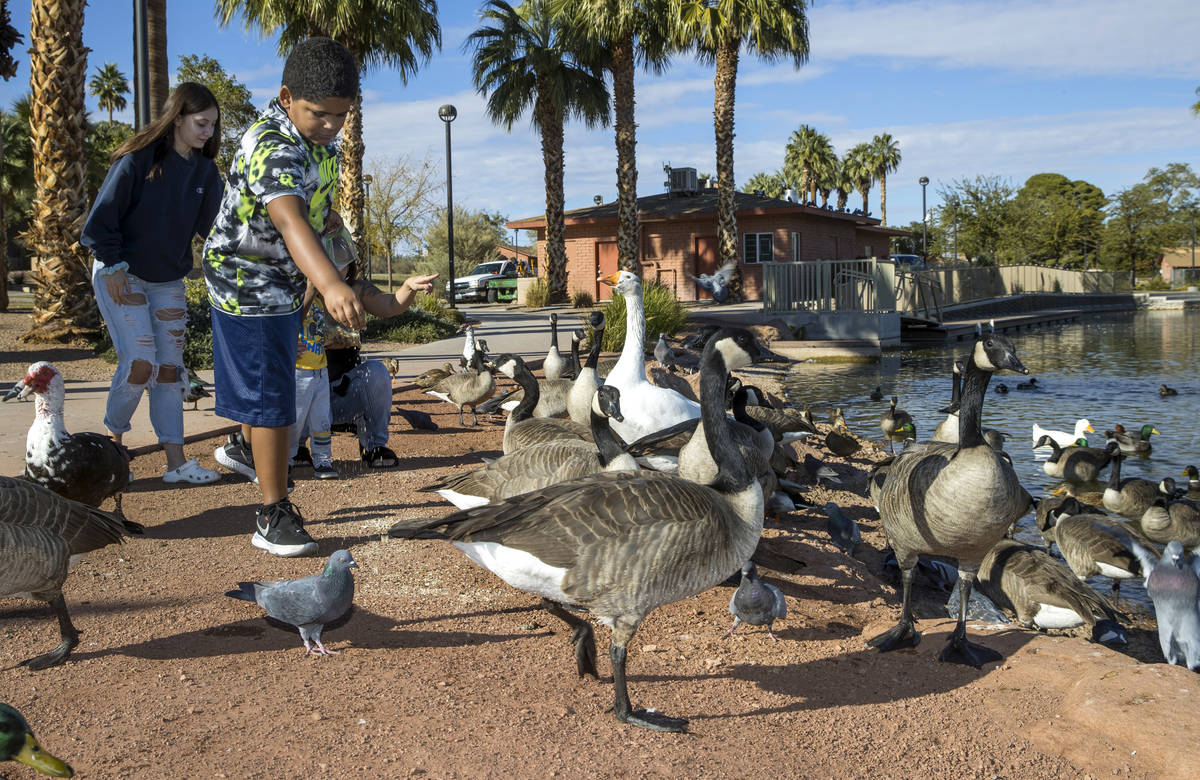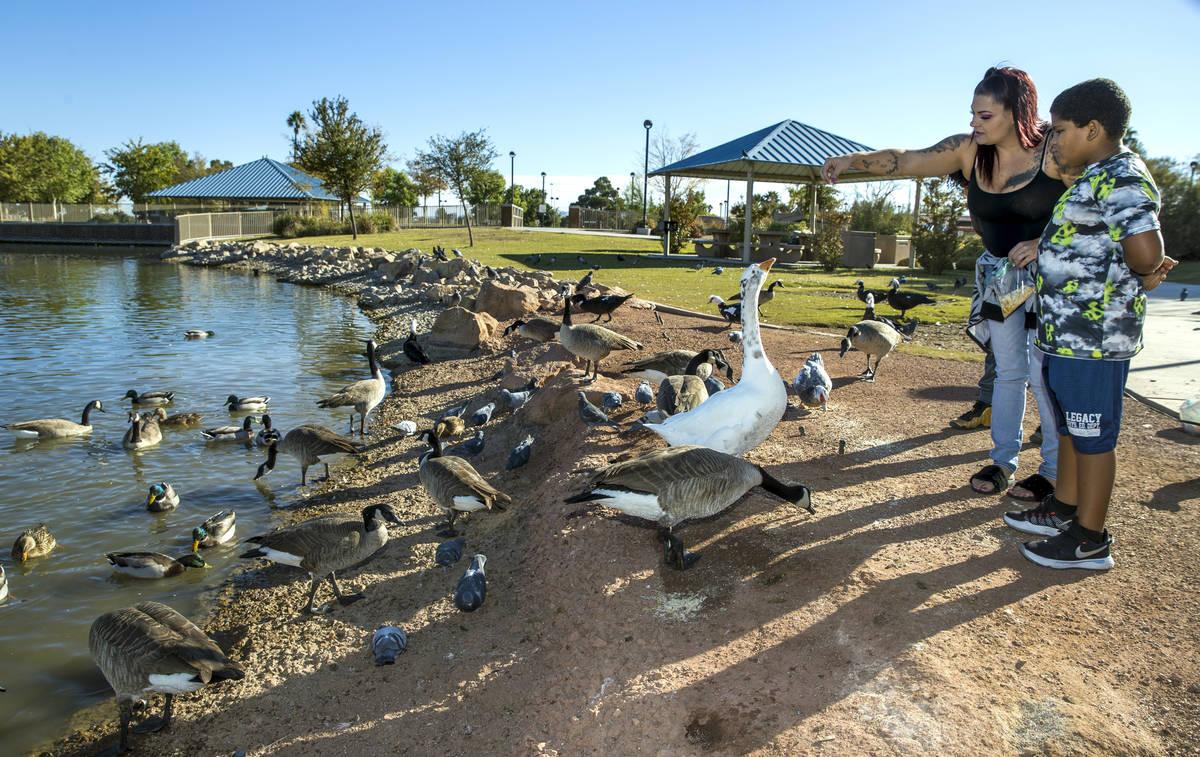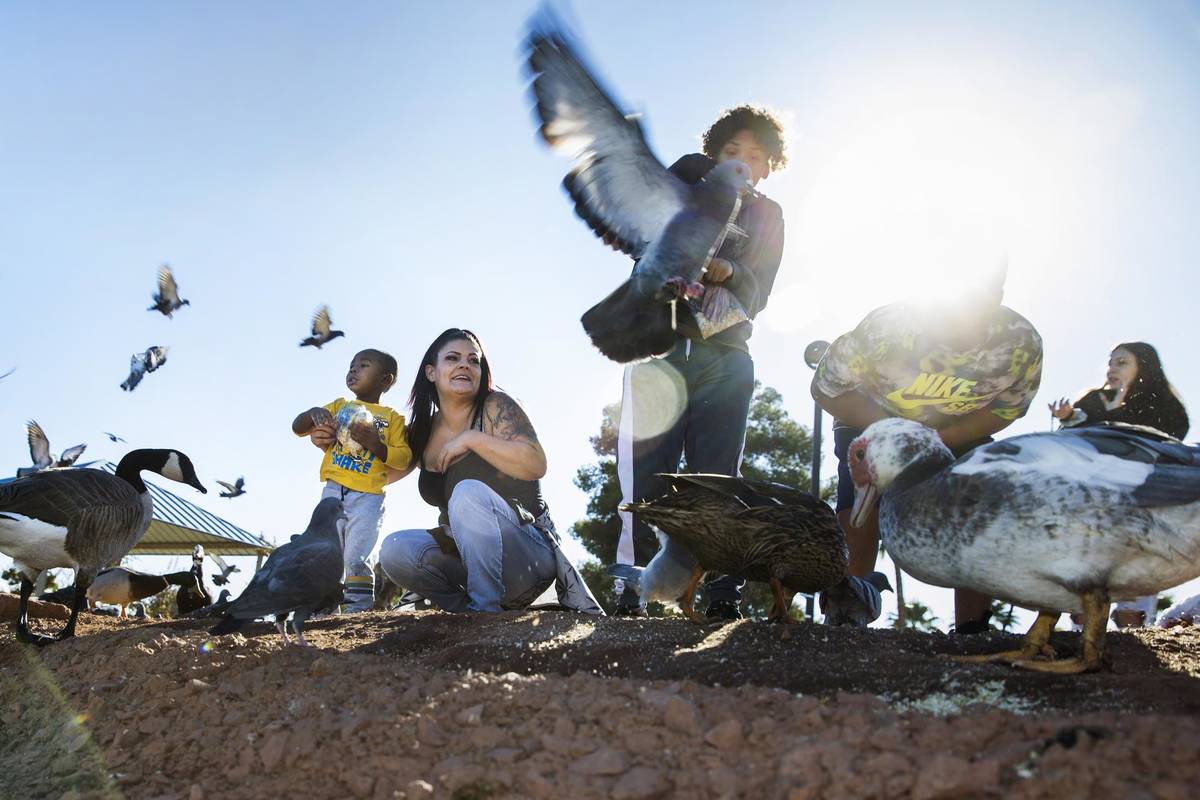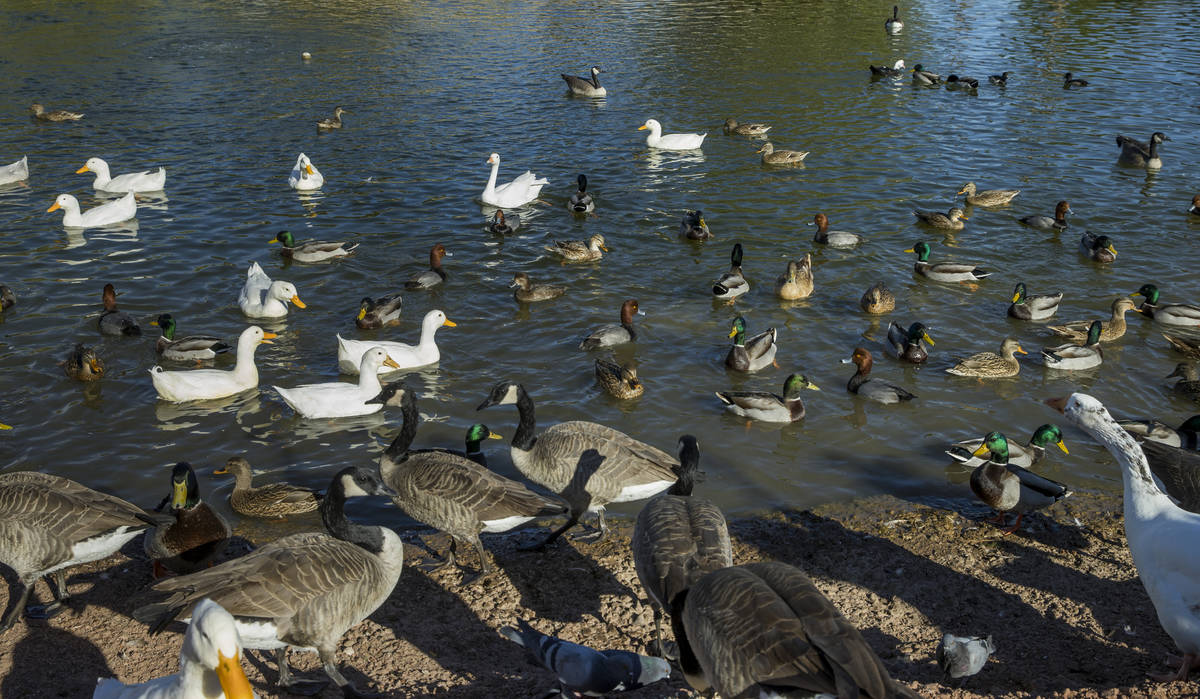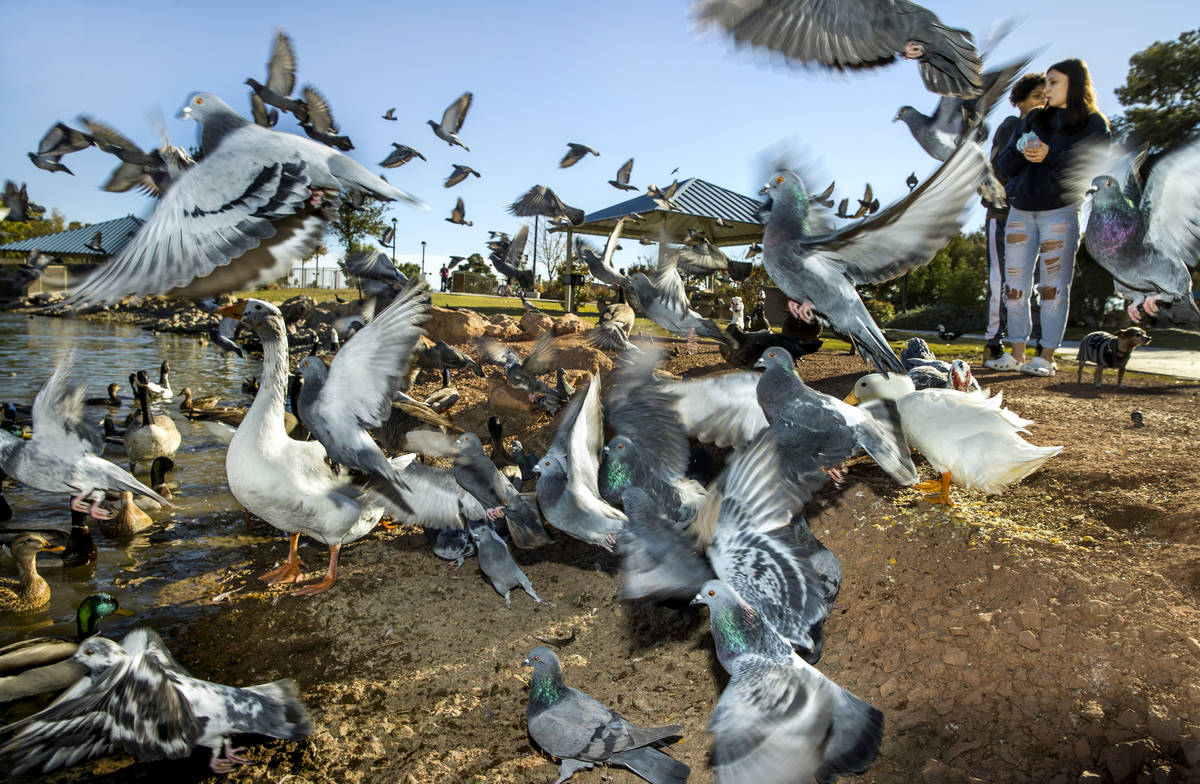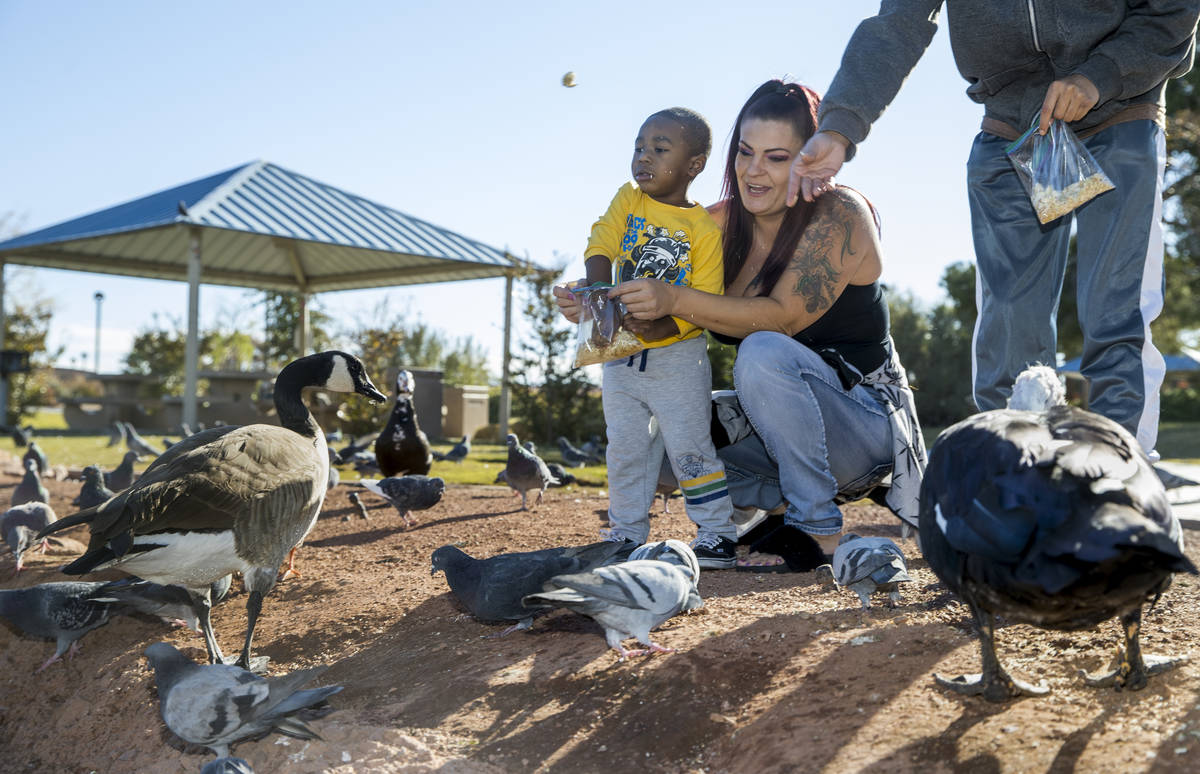Las Vegas bans feeding birds, other animals at city parks
One man wrote to Las Vegas city officials that he was “disgusted” by duck feces at Lorenzi Park after recently renting the oasis pavilion for a funeral.
Another noted how fowl droppings at Floyd Lamb Park were causing fishing ponds to be murkier than in decades.
“There’s a lot of issues with people feeding wildlife,” Kevin DesRoberts, a project leader with the U.S. Fish and Wildlife Service, told the City Council last week.
Concerned about the overpopulation of birds and other animals at city parks, the council passed an ordinance on Nov. 4 that now makes it illegal to feed them. Violators could be fined $10, but city marshals might only issue warnings.
The issue has been brewing for years, according to Councilman Cedric Crear, who sponsored the bill, which is expected to be revisited for effectiveness in six months.
The city already has a law on the books against feeding pigeons. By expanding the prohibition to include birds, waterfowl and feral animals such as cats and rabbits, city lawmakers are hopeful it will keep parks safe for residents and animals and also reclaim enjoyable aesthetics at parks where the issue is most prevalent.
It is a long-term management approach, according to Parks and Recreation Director Greg Weitzel. Feeding the animals will be outlawed, but signs will be erected soon to educate the public on the reasons why. He said other Southern Nevada governments have similar bans.
Harmful to wildlife
Human food is not healthy for wildlife, and food wrappers can be harmful to animals if digested, according to DesRoberts. Increases in wildlife population also raise the chance that humans get sick because birds can transmit more than 60 diseases to people, he said.
If the wildlife population were to grow too much, birds and other animals might need to be relocated or euthanized, he added. Moving federally protected birds requires permits from state and federal authorities.
“I think if we don’t get this under control, the people that love these birds so much, they’re going to wind up killing the birds,” Councilwoman Michele Fiore said.
Fiore, whose ward encompasses Floyd Lamb Park, said there have been several community cleanups on the grounds because of feces and noted how it is a health hazard for children who run around barefoot.
Some species of waterfowl drop up to a pound of feces every day, according to DesRoberts, who also expressed concern about animals becoming aggressive toward humans, a particularly troublesome prospect for small children.
Despite agreeing to the $10 penalty, Fiore and other city lawmakers said they were most interested in teaching the community about why feeding animals at city parks is problematic, even if the feeder was well-intentioned. Mayor Carolyn Goodman favored posting signs but questioned the practicality of the bill and requested future dialogue.
“We can’t get people to wash their hands and wear their masks, and we’re talking about fining people here,” Goodman said. “And who’s the Gestapo that’s out in all of our parks, that’s going to sit there, waiting to catch a little child making a mistake of feeding a bird?”
The ban extends to city recreational facilities and public plazas too.
Contact Shea Johnson at sjohnson@reviewjournal.com or 702-383-0272. Follow @Shea_LVRJ on Twitter.



